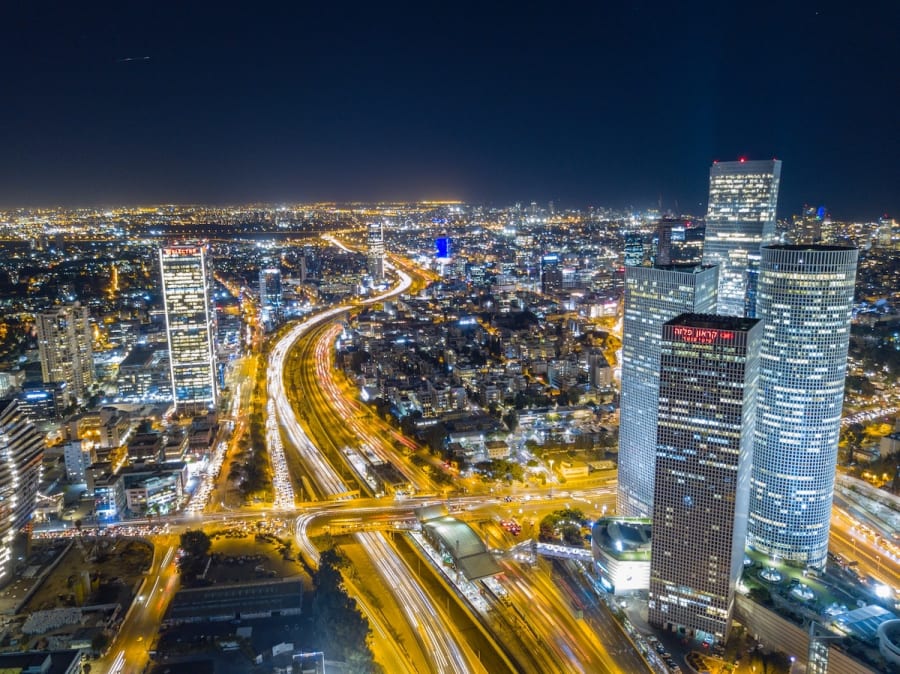Tel Aviv replaces Paris as the world’s most expensive city
The extremely high cost of living in Tel Aviv is ultimately linked to demand widely outstripping supply, especially in the housing market

Israel’s commercial capital Tel Aviv has replaced Paris as the world’s most expensive city according to a fresh ranking compiled by the Economist Intelligence Unit (EIU), which surveys the cost of living in 173 cities around the world.
The EIU report, Worldwide Cost of Living (WCOL), revealed that Tel Aviv’s jump from last year’s fifth place to the top spot, is a function of several factors including the strong shekel compared to the U.S. dollar, in addition to an increase in prices on transport, groceries and other products.
The ranking excludes housing prices, which have soared in recent years in central Israel, especially in the Tel Aviv area.
In a recent interview with the Israeli daily paper Haaretz, Tel Aviv mayor Ron Huldai expressed concerns that the city was moving in the direction of an “explosion” due to the high costs of living.
“Tel Aviv will become increasingly more expensive, just as the entire country is becoming more expensive,” said Huldai.
The mayor attributed Tel Aviv’s extremely high cost of living to lack of an alternative comparable metropolitan center in the Jewish state.
“The fundamental problem is that in Israel there is no alternative metropolitan center. In the United States, there is New York, Chicago, Miami and so on. In Britain, there’s Greater London, Manchester and Liverpool. There you can move to another city if the cost of living is too onerous,” Huldai stated.
This is based on the assumption that no other Israeli city can compete with Tel Aviv in terms of entertainment, professional opportunities, culture and dining.
Several Israeli governments have in recent years offered tax incentives to encourage high-tech companies in the Tel Aviv region to relocate to other parts of Israel such as the city of Beersheva in the Negev desert. However, a recent study reveals that 53% of all Israeli high-tech companies remain located in Tel Aviv.
For better or worse, Tel Aviv is where the action is in terms of culture, entertainment and commerce in Israel. The extremely high cost of living in Tel Aviv is ultimately linked to a demand side widely outstripping the supply side, especially in the housing market.
By contrast, the demand for housing in northern and southern Israel is much lower due to lack of professional opportunities and perceived inadequate quality of culture and entertainment.
From a global perspective, Israel is geographically so tiny that it could be defined as one metropolis. However, insufficient public transport systems and overcrowded highways have strongly contributed to the unhealthy commercial concentration and high living costs in the Tel Aviv area. People prefer to live close to their jobs and most quality office jobs in Israel are to be found in the Tel Aviv region.
As long as this reality persists, it is unlikely that living costs in Tel Aviv will drop anytime soon. While Israeli authorities are currently investing billions of dollars in upgrading Israel’s public transport systems, it will probably require at least a decade to see any improvements on the ground.
The top spots of expensive cities worldwide behind Tel Aviv were dominated by Western European cities such as Paris, Zurich and Copenhagen, as well as Asian cities such as Hong Kong and Singapore. New York is America’s most expensive city and is ranked sixth globally.
African and Middle Eastern cities dominated the list with the least expensive cities in the world. Syria’s capital, Damascus, was ranked as the city with the lowest cost of living.
Another Middle Eastern city that stands out in the current ranking is Tehran: Unlike most Middle Eastern cities, the Iranian capital climbed dramatically in the ranking from last year’s 79th spot into becoming the 29th most expensive city in the world. The reason for this is the opposite of Tel Aviv, however. The soaring costs of living in Tehran are linked to high inflation rates and a shortage of goods due to U.S. sanctions.

The All Israel News Staff is a team of journalists in Israel.













